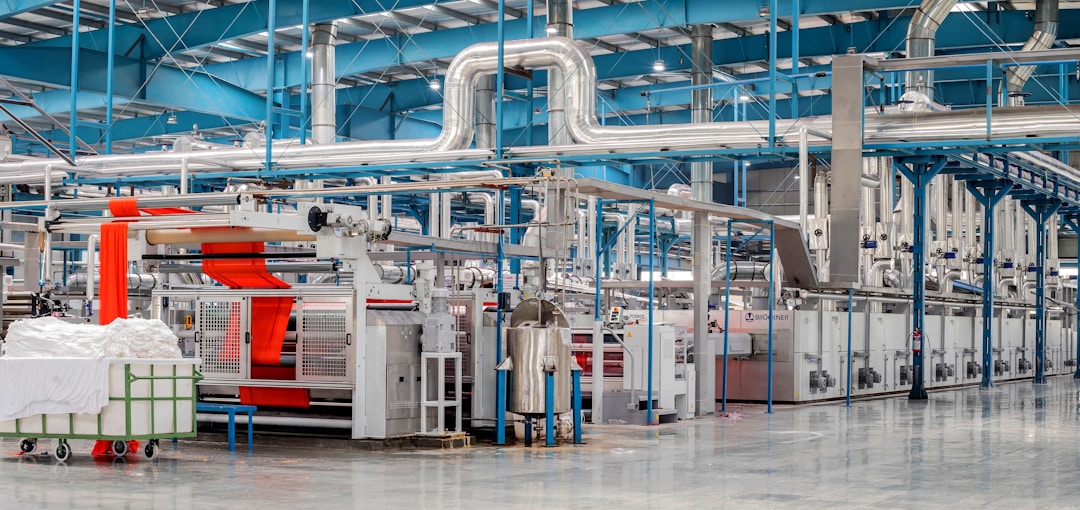Your Guide To Running a Manufacturing Company
The manufacturing sector is a dynamic and essential part of the global economy, known for its fast-paced environment and the continuous evolution of processes and technology. Running a manufacturing company involves understanding not only the technical aspects of production but also the market forces, regulatory requirements, and operational challenges that can impact success. With competition growing both domestically and internationally, it is critical to keep abreast of trends and innovations that can propel a manufacturing business forward. In this article, we will explore the various elements that are crucial for the effective operation of a manufacturing company. Below are key areas of focus every manufacturer should consider.
Understanding the Manufacturing Industry Landscape

Understanding the diverse segments of the manufacturing industry, from automotive to electronics, is crucial for strategic planning. Regular market analysis helps align product offerings with consumer demands and anticipate industry shifts.
Technological advancements drive efficiency and quality improvement. Investing in new technologies is essential, as is nurturing a skilled workforce capable of utilizing them effectively.
Strong partnerships with suppliers and distributors streamline operations. Choosing a reliable expedited truckload and special services carrier ensures timely delivery, vital for customer satisfaction and retention.
Streamlining Your Manufacturing Operations
Efficiency in manufacturing is crucial for productivity and cost-effectiveness. To achieve this, companies need to identify and address production bottlenecks. One effective approach is implementing lean manufacturing principles, which focus on reducing waste and maximizing productivity.
State-of-the-art manufacturing software can also enhance efficiency by optimizing inventory, scheduling, and providing valuable data for decision-making. Establishing a culture of continuous improvement encourages employee involvement in process optimization, fostering innovation and a stronger company culture.
Innovation in Manufacturing: Staying Ahead of the Competition
Innovation is the key driver for growth and sustainability in manufacturing. By investing in research and development (R&D), manufacturers can create new product lines and improve existing ones to meet changing customer preferences and technological trends. Collaborations with educational institutions and research organizations can also spur innovation. Partnering for R&D projects provides access to expertise and resources that might be otherwise unavailable, opening doors to groundbreaking advancements.
Manufacturers must consider the digital transformation of their operations. Integrating the Industrial Internet of Things (IIoT) into factories can lead to smarter, more efficient, and connected manufacturing processes that offer a competitive edge. Offering customizable and personalized products through advancements such as 3D printing technology can satisfy niche markets and demanding customers, distinguishing your company from the competition and potentially creating new revenue streams.
Implementing Sustainable Practices in Your Manufacturing Company

Sustainable manufacturing is now imperative due to rising consumer and regulatory demands for environmental responsibility. It also offers cost savings through reduced energy usage and waste management. Businesses can achieve this by adopting renewable energy sources like solar or wind power and investing in energy-efficient machinery and lighting.
Another critical aspect is resource-efficient manufacturing, which involves careful material selection and effective recycling and waste management. This not only benefits the environment but also helps mitigate resource scarcity risks. Manufacturers can innovate by developing eco-friendly alternatives, such as industrial dry chemical systems, to replace traditional processes harmful to ecosystems or natural resources.
Navigating Regulatory Compliance and Quality Standards in Manufacturing
Adhering to industry regulations and quality standards is crucial for any manufacturing company seeking to maintain its market position and guard against liability. Regulatory compliance ensures the safety and quality of products, which is fundamental to customer trust and brand reputation.
Familiarity with international, national, and local regulations, such as ISO standards, is inevitable. Regular audits and trainings can help in keeping up with these benchmarks and legislation, thus avoiding costly penalties or recalls.
Investing in quality control mechanisms throughout the production process is also essential. This can take the form of sophisticated monitoring equipment and skilled quality assurance personnel, ensuring that products meet the expected standards before reaching the consumer.
Lastly, having a responsive and effective recall plan is also critical. Despite stringent quality control measures, if a defective product slips through, it’s important to act swiftly and efficiently to mitigate the damage to both consumers and the company’s reputation.
Overall, running a manufacturing company today demands a multifaceted strategy. Staying updated on industry trends, optimizing operations, fostering innovation, prioritizing sustainability, and maintaining regulatory compliance and quality are crucial. These elements fortify businesses against modern challenges, ensuring resilience and growth in the competitive global market.





